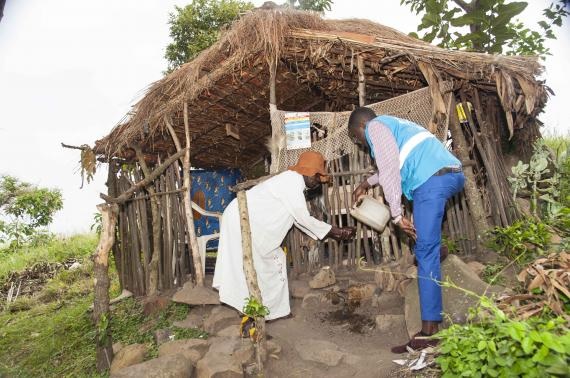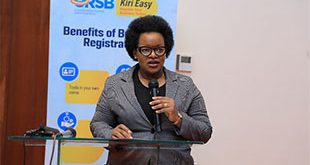
Kampala, Uganda | THE INDEPENDENT | Ugandans are thirty more times able to receive health care from traditional healers or herbalists compared to Western-trained medical doctors according to medical experts.
Data from the health ministry shows that at the moment, the patient healer ratio stands at one healer for every 700 hundred people. This is low compared to the one doctor, 25,000 patients ratio in regard to medical doctors.
The revelation was made by the director-general of the Uganda National Health Research Organisation Dr Sam Okware during a herbal researchers workshop.
Dr Okware says the traditional healers are more popular than medical doctors in some communities due to the way they carry out their work. According to Okware, unlike medical doctors who are placed in health facilities that are often far away from communities, traditional healers are found within communities.
In 2019, parliament approved the Traditional and Complementary Medical Medicine Act that spells out regulations and guidelines pertaining to herbal medicine in Uganda.
According to the health ministry, over 60 percent of Ugandans rely on these healers to handle ailments such as malaria, skin disease and respiratory diseases such as cough and flu, and some chronic illnesses such as diabetes, cancer and even stomach ulcers.
Despite their popularity, the use of herbal medicines often creates debate on their ability to work.
Dr Grace Nambatya says despite their popularity, many herbalists are belittled by trained medical doctors. She says often they are referred to as witch doctors or quacks something that casts doubt on their ability to treat diseases.
“We have used herbal products from time memorial,” Nambatya said. “Many of the conventional drugs are derived from herbs. But some doctors in the medical field refer to herbalists as witchdoctors. This is not right because herbalists are healers who have a lot they can offer or even teach conventional doctors about healing.”
In addition to this, the claims made by some herbalists that portray one product as healing more than one ailment create doubt. Dr Okware says despite the popularity of traditional healers, many of them are not willing to pass on knowledge to other persons. He says this is a big challenge that will likely lead to a reduction in the number of herbal healers that communities can access.
“Many of these healers have vast experience but are illiterate and not willing to part with their knowledge,” he said. “They opt to keep it secret to pass it on to their next of kin within their households. This means that few people can benefit from their knowledge but this also gives birth to quack healers.”
In April this year, the National Drug Authority began the process of registering all herbalists in the county.
Dr Micheal Mutyaba, the manager of National Medicines at NDA says the main aim of registering herbalists and their products is to ensure that their products are safe for human consumption and are not adulterated.
Mutyaba says the registration is part of the authority’s mandate to regulate herbal medicines use in the country. According to Mutyaba, over 180 locally manufactured herbal products have been registered.
*****
URN
 The Independent Uganda: You get the Truth we Pay the Price
The Independent Uganda: You get the Truth we Pay the Price


